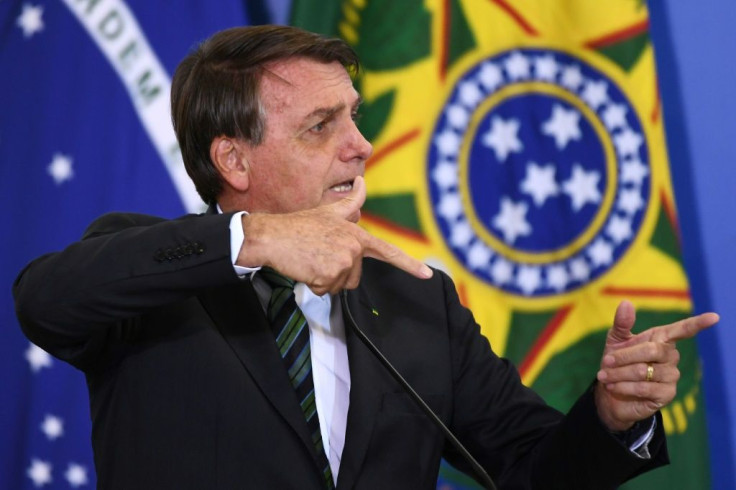Brazil Congress Passes Law Giving Central Bank Autonomy
Brazil's Congress passed a bill Wednesday giving autonomy to the central bank, as President Jair Bolsonaro moved to start delivering on a long-delayed agenda of economic reforms.
Investors have been clamoring for years for Brazil to give the central bank formal autonomy from political interference, so as to reduce the risk of presidents pushing unnecessary interest-rate cuts -- which can turbo-charge economic growth in the short term but fuel runaway inflation over time.
Bolsonaro, who has been a cheerleader for low interest rates himself, is nevertheless expected to sign the bill. It is part of a series of reforms the far-right leader promised the business sector as a candidate in 2018 and now faces pressure to deliver as he gears up to run for re-election next year.
"This is going to give the country a new standard of monetary governance and send a signal to the international market that we are improving our tools to manage the economy," said the bill's chief sponsor in the lower house, Silvio Costa Filho of the Republicans party, a Bolsonaro ally.
Brazil, the largest economy in Latin America, has long had de facto central bank autonomy, but had not enshrined it in law.
The bill protects the central bank's monetary policy committee -- its chief and eight directors -- from being fired by the president.
It gives them four-year terms, with the central bank chief's term timed to expire halfway through the four-year presidential one.
It sets a two-term maximum for the central bank chief, who, like the directors, will be nominated by the president and confirmed by the Senate.
The current monetary policy committee will keep their posts to start, including central bank chief Roberto Campos Neto, whom Bolsonaro named to the job in February 2019.
Neto, a 51-year-old economist, was recently named "central banker of the year" by Britain's The Banker magazine for his handling of the coronavirus pandemic.
The bill, which cleared the Senate on November 3, passed the lower house by a vote of 339 to 114.
It also expands the bank's official mission: while its main goal remains ensuring stable prices, it will now also be tasked with things such as smoothing economic fluctuations and promoting full employment.
Numerous studies have found central bank independence is linked to lower and less volatile inflation over time.

However, critics argue central bankers are likely to favor big business over ordinary workers if not held accountable to elected governments.
"This will put the fox in charge of the henhouse," said opposition lawmaker Orlando Silva of the Communist Party of Brazil (PCdoB).
Bolsonaro's own politics appear to clash with central bank autonomy at times.
Like his political role model, former US president Donald Trump, Bolsonaro has not been shy about urging the bank to hold interest rates low to keep the economy burning as hot as possible.
So far, circumstances have conspired to keep him and Neto on good terms.
Looking to contain the economic fallout of the pandemic, which is pummeling Brazil, the central bank has held the benchmark interest rate at an all-time low of two percent since August.
But recently inflation has increased, and the central bank looks likely to raise the rate again soon.
Annual inflation was 4.56 percent in January, and has been trending toward the top of the central bank's target range of 3.75 percent plus or minus 1.5 percentage points.
Bolsonaro's popularity is meanwhile trending down amid his erratic handling of Covid-19 and signs the economy is slowing again.
Looking to improve his lackluster track record of getting legislation through Congress, Bolsonaro recently forged an alliance with a powerful, pork-barrel-plumbing coalition of parties called the Centrao.
The central bank bill was the first passed since.
It does not, however, give full independence to the central bank. The bank's inflation target will still be set by a council comprising Neto, ultra-liberal Economy Minister Paulo Guedes and the economy ministry's secretary of finance.
jhb/dw
© Copyright AFP {{Year}}. All rights reserved.




















